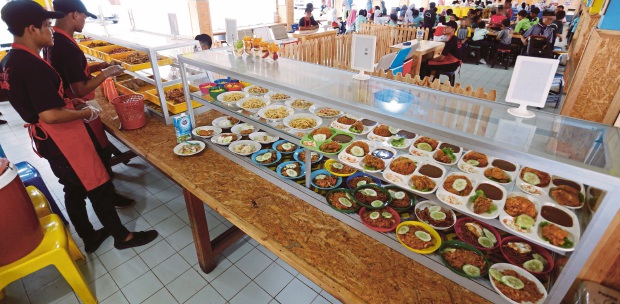LETTERS: Now that our children have returned to school after their forced breaks, it may be a propitious time to look at the crucial role canteens play in promoting health and inculcating healthy eating habits in children.
Most children depend on food sold at canteens for their meals during breaks.
As schools become single session and learning hours extend to the late afternoon, it is expected that more children will have their lunch at their canteens.
The National Health and Morbidity Survey in 2015 showed that almost 30 per cent of children are affected by overweight and obesity problems — a big risk factor for diseases such as diabetes, hypertension, hypercholesterolemia and certain types of cancer in later life.
Among the contributing factors are poor eating habits and a lack of access to nutritious and balanced meals. These habits unfortunately start at an early age.
Health director-general Tan Sri Dr Noor Hisham Abdullah, at the launch of the Healthy School Canteen Management Guide in 2018, said: "School health programmes, including ensuring healthy food culture in canteens, are one of the most efficient means to prevent or reduce bad food habits and provide the ideal setting to teach children how to lead a healthy lifestyle with a nutritious diet."
Here are five ways canteens can promote children's health:
FIRST, school authorities can follow the healthy canteen guidelines and ensure compliance by canteen operators.
They can put the canteen under the supervision of a trained teacher, who must be hands-on in ensuring canteens play their role in nurturing children's health.
A study by the United States Department of Agriculture, Food and Nutrition Service supports this assertion that school meals help children become healthier.
Nutritious meals improve their behaviour, promote better mood and fewer absences, besides achieving better test scores and attention spans;
SECOND, school canteen operators can benefit from guidance and monitoring by the science officer (nutrition) from the health department;
THIRD, the parent-teacher association could subsidise wholesome foods sold in the canteen, allowing children to make healthier choices. It will be easier on their pockets as well;
FOURTH, canteens should be made to label their foods with a simple star-rating system easily understood by children to help them to discern the healthy content of the meals and drinks sold.
Canteens should not sell food that does not meet the minimum healthy content.
Vending machines are a source of income for schools. However, canteens and school authorities have an obligation to look out for their pupils by allowing only those that dispense healthy snacks and low-sugar drinks and juices;
FIFTH, dental healthcare practices need to be initiated at schoolgoing age. The National Oral Health Survey in 2015 found that seven out of 10 Malaysian preschool children had dental cavities.
Choosing low-sugar foods and brushing after main meals can begin at a young age that will then remain with the children for the rest of their lives.
The maxim "only a healthy child can reach their maximum intellectual potential" needs to be imparted among educators. Canteens play a vital role towards this.
ASSOCIATE PROFESSOR DR JEGARAJAN PILLAY
Deputy Dean, Faculty of Dentistry, AIMST University
The views expressed in this article are the author's own and do not necessarily reflect those of the New Straits Times





